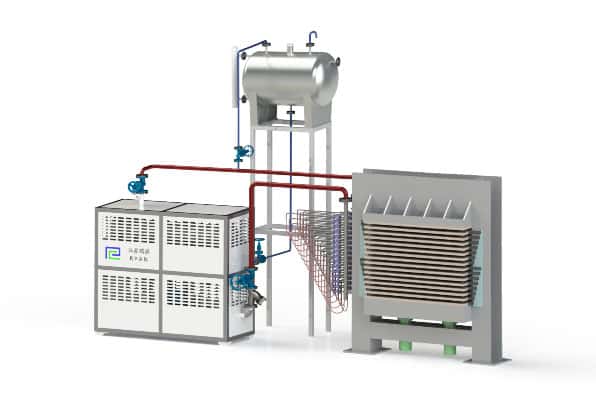In modern industrial production, electric heating thermal oil heaters https://8ruiyan.com/en/all-organic-heat-carrier-boilers/ are essential thermal energy equipment for many businesses. However, oil leakage not only affects production efficiency but may also pose safety hazards. Today, we will discuss emergency handling methods and preventive measures for thermal oil heater leaks.

What to Do Immediately Upon Discovering a Leak?
Immediately Shut Down and Cut Off Power
Upon discovering a leak, the first step is to immediately stop the equipment and cut off the power supply. This is the most critical step to ensure safety, preventing oil from contacting electrical components and causing a fire.
Set Up a Warning Area
Place clear warning signs around the leakage area to prevent people from accidentally entering, slipping, or coming into contact with high-temperature oil.
Ventilate the Area
Turn on workshop ventilation equipment to ensure air circulation and prevent oil vapor from accumulating to dangerous concentrations.
System Inspection and Emergency Handling
Identify the Leak Location
Common leakage points include:
- Flange connections and sealing points of pipelines
- Sealing parts of pumps and valves
- Heat exchanger interfaces
- System weld points
Temporary Control Measures
Depending on the location and severity of the leak, the following measures can be taken:
- Use specialized sealants for temporary plugging
- Place oil containment trays under the leakage point
- Use absorbent materials (such as oil absorbent sand or pads) for small-scale leaks
Professional Repairs
After temporary control, contact professional technicians for thorough repairs:
- Replace damaged seals
- Repair or replace damaged pipelines
- Check and correct system pressure
Leak Cause Analysis and Prevention
Common Causes of Leaks:
- Seal Aging: Sealing materials harden and fail under long-term high-temperature conditions.
- Abnormal System Pressure: Excessive pressure beyond design tolerance.
- Welding Defects: Equipment vibration causes fatigue cracks at weld points.
- Corrosion Damage: Poor-quality thermal oil or oxidation produces corrosive substances.
Preventive Measures:
- Establish a regular inspection system to check seals monthly.
- Use high-quality thermal oil and regularly test oil quality.
- Install pressure monitoring and automatic protection devices.
- Conduct a comprehensive system inspection annually.
Safety Is No Small Matter
Thermal oil heater leaks not only cause production interruptions and economic losses but may also lead to fires and environmental pollution. Companies should develop comprehensive emergency plans and regularly organize safety training for employees to ensure every operator masters basic emergency handling skills.
Remember, never attempt repairs while the equipment is running. Safety always comes before production progress.
If you encounter a leak that cannot be handled, contact a professional repair team immediately. Do not attempt to handle it blindly on your own.
Safety First, Prevention Foremost—this is the primary principle for handling any equipment failure.
For further consultation, please contact our technical team for expert advice.
Whatsapp:86-19106101570
wechat:86-19106101570
email:fob@jsryan.com
